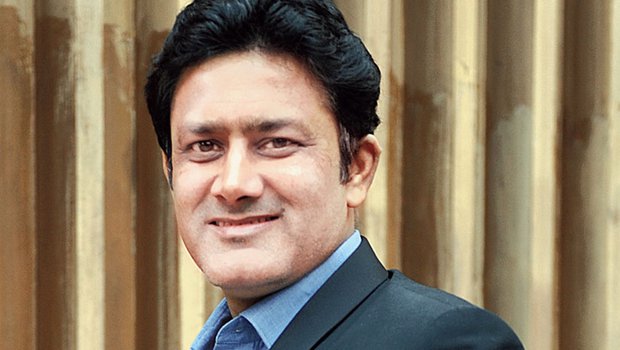Any attempt to modify the laws regarding use of saliva on the ball and allow an artificial substance is expected to face strong resistance from the International Cricket Council (ICC)’s cricket committee when it comes up for discussion during the annual conference in July. However, the meeting could be convened earlier and the matter taken up on a priority basis if the circumstances so demand.
The change in rules is being talked about in the wake of the Covid-19 pandemic and its effect on the game.
The ICC’s medical committee discussed several issues cricket is facing and its possible resumption at the recent chief executives’ conclave held via tele conference. While Anil Kumble heads the cricket committee, the medical panel is chaired by Dr Peter Harcourt.
The use of substance on the ball is understood to have been raised during the conference with members leaving it to the medical committee to take a call. “Such things are best left to the medical professionals. But a way has to be found to strike the right balance between bat and ball. At the same time you can’t have something that will trigger a controversy,” said a member.
However, it may not tantamount to a change in the laws. “The medical committee will obviously have the final say. As of now there’s no cricket before July. But the cricket committee will work in tandem with Dr Harcourt in arriving at a decision,” someone in the know of things told this newspaper.
“Whatever modification is necessary will be done on a temporary basis. It will not really mean changing the laws and hence may not involve the Marylebone Cricket Club (MCC), the custodians of the laws of the game.”
The ICC relies on MCC to “write and interpret the laws of cricket”, a tradition that has been going on for over 200 years. It helps that John Stephenson, director of cricket at MCC, is also on the ICC cricket committee.
Among others, the ICC panel includes Andrew Strauss, Mahela Jayawardene, Rahul Dravid, Tim May, Mickey Arthur, Ranjan Madugalle and Shaun Pollock.
Mike Gatting is the chairman of the MCC’s world cricket committee which includes the likes of Alastair Cook, Sourav Ganguly, Brendon McCullum, Ricky Ponting, Ramiz Raja, Kumar Sangakkara and Shane Warne.
None of the members of the committees The Telegraph spoke to seemed enthusiastic about using artificial substances on the ball.
“Absolute rubbish,” said one of the members. “I understand you can avoid saliva on the ball, but what about sweat? In subcontinent conditions your palms are always greasy because of the sweat. How can you avoid that?
“This can’t be done in any outdoor sport. So thinking about not using sweat on the ball is illogical. The more logical thing will be to test the players before the match and monitor their body temperatures.”
Another member offered a more feasible solution. “What about having a new ball, say every 50-55 overs. That will help in maintaining the shine. But use of any artificial substance even in the presence of the umpires goes against the spirit of the game.”
It also wouldn’t come as a surprise if the ICC involves the captains of Test playing nations in arriving at a decision.
According to the laws, a fielder may “polish the ball on his/her clothing provided that no artificial substance is used and that such polishing wastes no time”.
The law also states: “It is an offence for any player to take any action which changes the condition of the ball.”











